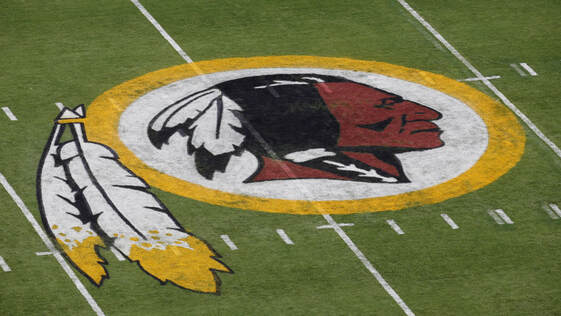|
By: Sanjith Prabhu The Washington Redskins are a franchise in the National Football League (NFL). The team resides near the Washington DC area at FedEx Field, in Maryland. This is because the then-owner of the team in the late 1980s wanted a larger stadium after moving out of Robert F. Kennedy (RFK) stadium in DC, the former home stadium for the team.
The team name though, has been controversial for many decades. Only a few have thought of the need to change the team name, as they believe that it is oppressive and racist towards Native Americans. In light of the recent death of George Floyd, more have inclined towards changing the name of the team in the Black Lives Matter movement. The Atlanta Braves, Chicago Blackhawks, Kansas City Chiefs, and Cleveland Indians are also major sports teams facing some pressure in this movement about their team name, though it is not nearly as intense as the Redskins. Based on this, some of the major Washington Redskins’ sponsors have threatened to withdraw from their contributions to the franchise. Specifically, FedEx to possibly change the name of the stadium, Nike and other retailers to remove Redskins fan gear, stockholders to not invest in the team, and the franchise to not be able to move back to RFK stadium, which the current owner Dan Snyder has openly said he wants to do. The team was then virtually forced to change the name, which is quite ironic because in 2013, when some controversy arose about the name, Dan Snyder had said in an interview with USA Today, "We'll never change the name, It's that simple. NEVER — you can use caps.” This did not hold true as the franchise recently made it official that they changed their name to ‘The Washington Football Team’, even though it is a temporary placeholder. Across a plethora of surveys and polls in the early to mid 2010s over the controversy on the franchise’s name, there is a pattern that more people are leaning towards the opinion that the name is disrespectful and needs to be changed. In fact, the percentage of people surveyed in 1992 and 2014, respectively, who thought the name was oppressive had gained 15 percent, not to mention from 2013-2014 it had increased by a whopping 9 percent. This was due to the aforementioned 2013 controversy, when the then-mayor of Washington DC, Vincent Gray had explained that he would like a name change. This started a domino effect as later that year many events happened to help make change. Congress members asked the NFL and the team for a name change. Then, news writers did not want to use the team name in their articles. The Oneida Native American tribe spoke out about this as did the president. This swayed some to agree with this take on the team name. This increasing trend in the mid 2010s certainly should not be discounted, even though the Black Lives Matter movement had impacted the amount of people in favor of this viewpoint. However, a seven month study by Smithsonian Researcher Ives Goddard tells differently. Goddard’s study shows that Redskin was a common term first used in 1769 for Native Americans to refer to themselves. In the 19th century, the word was used routinely and freely by others as well to refer to them. Fast forward to 1933, when the then Boston Braves owner, named George Preston Marshall, had changed the team name to Redskins to avoid confusion with the Boston Braves baseball team. It is to be noted that the Redskins had 6 Native Americans on their active roster as well as their Native American head coach, William Henry “Lone Star” Deitz. From this, it can easily be interpreted that the naming of this team was not directed to be oppressive. Although there is still controversy remaining about this team name, there is no clear evidence yet to support whether it was intended as oppressive and racist towards Native Americans or not. As of right now, it still remains to be seen what the team plans to change their name in the long term as again the ‘Washington Football Team’ name is temporary. Sanjith Prabhu (he/him) is a freshman at New Trier Township High School in Illinois. He loves STEM and quantitative challenges, as well as strategic thinking such as football analysis and chess. He is excited to participate in Culture Talk and learn about various cultures across the globe, sharing interesting elements that he discovers along the way.
0 Comments
Leave a Reply. |
Details
AuthorCulture Talk Team Archives
May 2021
Categories |

 RSS Feed
RSS Feed